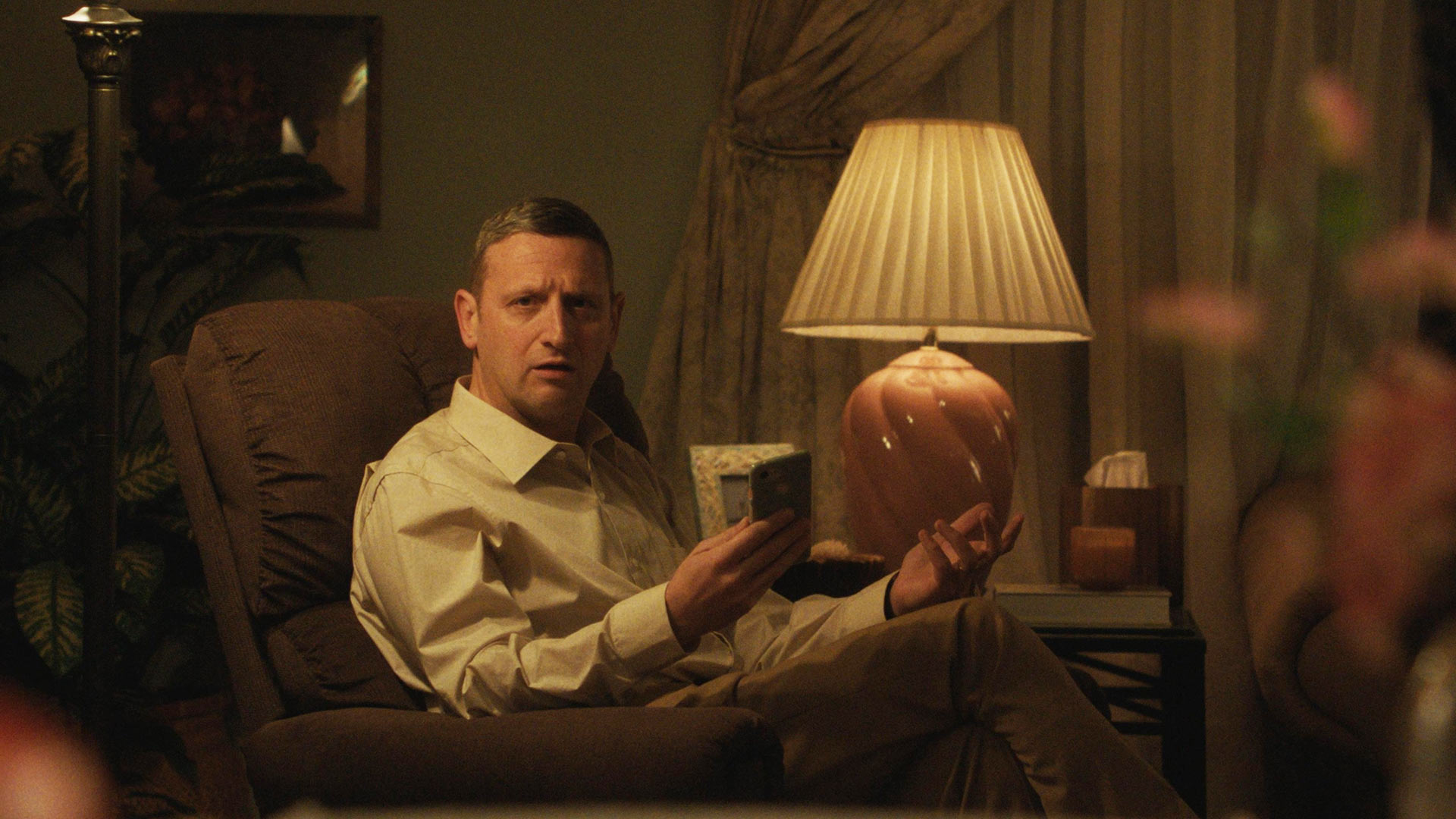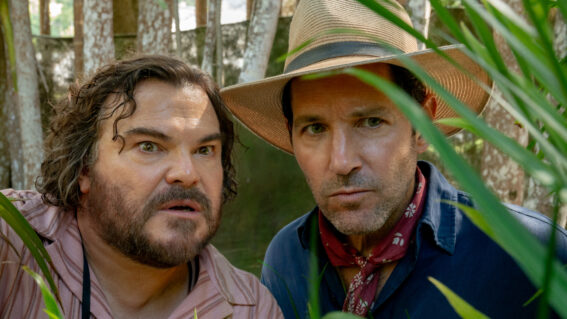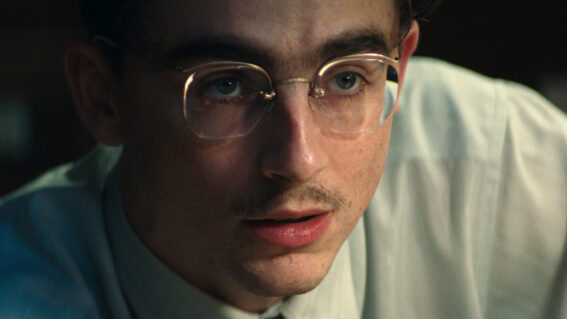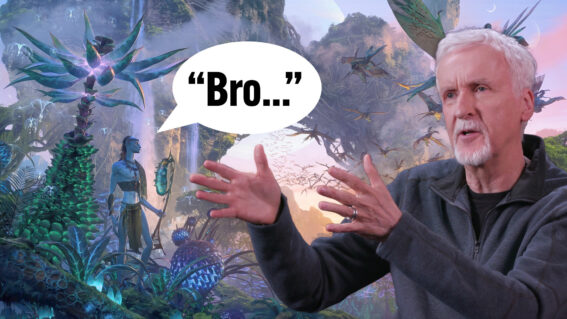Comedy or thriller? The cringe-inducing pleasure of Friendship
Tim Robinson blurs the line between weirdo and deranged menace in this warped black comedy, which combines gut laughs and stomach-turning tension.

Throughout Friendship, I wondered: is the protagonist becoming weirder, or are we just getting to know him?
Weirdness is the stock-in-trade of the actor who plays him, Tim Robinson, a comedian best-known for his very funny sketch comedy series I Think You Should Leave with Tim Robinson. That title would be more accurate if the “with” were dropped, given it’s usually the decorum-breaking Robinson who finds himself stranded in social no-man’s-land. Often through his own fault—by, say, crashing a hot dog car into a clothes shop—but sometimes for something innocent, like wearing a silly hat.
The big question permeating writer/director Andrew DeYoung’s entertainingly awkward black comedy is whether the actions of Robinson’s character, Craig Waterman, are more like the hotdog scenario or the hat. When Craig behaves in strange ways, is he being a dick, or is he just a bit of a dag, making innocent mistakes?
Craig is a marketing executive and homebody married to a much more personable wife, Kate (Tami Waterman), who is going through cancer remission. We meet them at a support group for cancer survivors, where Craig offers an impossible assurance: there’s no way the cancer is coming back. It’s a clumsy, stupid comment, but it’s a clever writing flourish because it seems to be coming from a good place. Is he inept—unable to read social cues—or is there something else going on?
Soon after, Craig meets his new neighbour Austin (Paul Rudd), a keen-to-please TV weatherman who takes him on an adventure—exploring a disused tunnel system—and invites him to hang with his mates. DeYoung’s screenplay, and Robinson’s performance, engage in a give-and-take, indicating that something might be a little off about Craig but pulling it back, suggesting we maybe we could give him the benefit of the doubt. When he walks headfirst into a glass wall at Austin’s house, and it shatters behind him, he responds by making chitchat (“so where did y’all meet?”), making the room erupt in laughter.
But when Craig sucker punches Austin, it’s a bridge too far. This leads his new pal—who he’s become obsessed with—to call time on their relationship. In this moment the audience invariably thinks, uh-oh. Has Craig been activated, like a dragon woken from its slumber? The word “cringe” has been used to describe the film’s humour, acknowledging a visceral reaction—something that makes your body stand up and notice. Comedy that makes you feel—more in the stomach than the heart.
The film could be read as a spiritual successor to Ben Stiller’s The Cable Guy, starring Jim Carrey as a bug-eyed cable installer and Matthew Broderick the equivalent of Paul Rudd’s character: his new friend, or “friend,” or soon to be former friend, ensnared in a relationship that upends his world. Carrey’s character was obviously insane, while Craig’s actions initially take place in a grey area—the early stages of friendship often being a bit awkward, as two people get to know each other and establish the parameters of their relationship.

We can sense from the start that Craig’s unlikely to respond to difficult circumstances level-headedly. But certain questions beg. Like, how dark will this film get? How far will he go? Will—or when will—he flip? Like in The Cable Guy, the trajectory of Paul’s story has an “over their head” element, which we often see in crime movies. But instead of an irrational action triggering a series of escalating consequences, it’s a kind gesture, an act of friendship that forms the thin end of the wedge.
This results in a relatively rare, and difficult to pull off, overlay of comedy and thriller. And, in terms of dramatic anticipation, a blending of character and plot as the nexus of the action. The question “what happens next” is very close, in Friendship and The Cable Guy, to “what will he do next?” Robinson eats up the role, which DeYoung has said that he wrote specifically for him, infusing it with ambiguity before eventually exploding into face-stretching outlandishness, more cartoon than man.
The film is an extreme depiction of a relationship that goes south. Yet there’s something oddly real, something sadly human, something mordantly amusing about the whole thing. Friendship got me thinking about the subjective nature of normality and that old quote—“to the crazy person, the normal one is insane.” There’s no such thing as normality, I suppose…just different ways of being. Which is all well and good, until some jerk sucker punches you in the gut.























